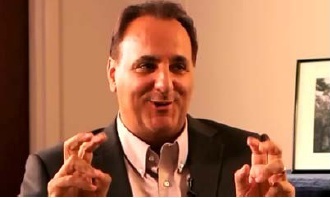
http://winwinhr.com/best-practices-for-assessing-witness-credibility-in-workplace-investigations/
The matter of credibility lies very near the heart of the controversy over geocentrism. The new geocentrists present themselves as both qualified and competent to overturn the entire world of physics and astrophysics concerning the motion of the earth. They also present themselves as uniquely trustworthy and honest in their dealings with the scientific data. From a scientific standpoint the geocentrists have been effectively rebutted, both on this site and elsewhere (see Geocentrism as Bad Science); ditto for theology (see Geocentrism as Bad Theology). But let’s face it, most people don’t have the time or energy to sift through lengthy and elaborate theories and arguments – both conspiratorial and scientific in nature. As such, at some point, it’s reasonable that it comes down to who is credible and who is not.
We’ve already looked at the credibility of the geocentrists from a number of angles. Whether it’s habitual plagiarism, conspiracy-mongering, basic mistakes in science and math, or very specifically in the case of Robert Sungenis some very questionable academic credentials, time and again the new geocentrists just don’t come off as credible.
To continue this theme, my last posting, “Sungenis Botches the Math, Again!“, highlighted Bob Sungenis’s seeming inability to correctly answer a high school level math problem, incredibly even after he had been given the correct answer and two tries to get it right.
Since then, in his recent article “Geocentrism: According to  Hoyle?” Dr. Tom Bridgman has highlighted yet another area where the geocentrists strain credibility, namely, their propensity to cite scientists and other scholars out of context:
Hoyle?” Dr. Tom Bridgman has highlighted yet another area where the geocentrists strain credibility, namely, their propensity to cite scientists and other scholars out of context:
the topic I wish to specifically address in this post is Mr. Sungenis’ quote-mining of Fred Hoyle (wikipedia) to support his position. Sungenis does this using HIS twisted definitions of terms rather than those meant by the person he is quoting, but then this is the standard for the practice of quote-mining (Wikipedia).
The particular reference Sungenis uses is Fred Hoyle’s book, “Nicolaus Copernicus: An Essay on his Life and Work” written in 1973 (Google Books).
In this book, written for popular audiences, Hoyle invokes relativity (the equivalence of ALL reference frames) to make the point that we can just as easily consider the universe as centered on the Earth, as well any other point. The most telling example of Sungenis’ distortions is, in quoting Hoyle from “Nicolaus Copernicus: An Essay on his Life and Work“, p. 82. he quotes Hoyle a little TOO much…
“we can take either the Earth or the Sun, or any other point for that matter, as the center of the solar system.” (emphasis mine).
Sungenis quotes, but conveniently ignores, the full implications of Hoyle’s meaning with this statement, instead choosing Hoyle’s mention of the equivalence of the ‘geocentric’ view to spin the statement into claiming Hoyle supports Geocentrism with Earth as some absolute cosmic center. I’m surprised Sungenis didn’t make that clause disappear with ellipsis…
Hoyle was not a Geocentrist in the sense of claiming the Earth can be the center of the universe in any absolute sense, but advocating geocentrism as a frame of reference chosen for convenience (much the same as Phil Plait’s argument at Geocentrism? Seriously? and Geocentrism: Does NASA use Geocentrism?) where we can chose Earth, or any other point, as the origin for our coordinate system. THAT is the underlying basis of relativity which Sungenis tries to ignore and evade. Hoyle could just as correctly chosen Mars, or Saturn, or gamma Andromedae or the M33 galaxy as the center, with no loss of generality. But, since Hoyle was writing for a lay audience, he probably chose Earth for familiarity (“Geocentrism: According to Hoyle?”.)

en.wikipedia.org/wiki/Albert_Einstein
Dr. Bridgman’s example is by no means an isolated case. The geocentrists do this all the time with scientists who are speaking about general relativity. One of the geocentrists’ favorite quotes is from Albert Einstein – you’ll often see the following text cited in isolation by the geocentrists:
The struggle, so violent in the early days of science, between the views of Ptolemy and Copernicus would then be quite meaningless. Either CS [coordinate system] could be used with equal justification. The two sentences, “the Sun is at rest and the Earth moves,” or “the Sun moves and the Earth is at rest,” would simply mean two different conventions concerning two different CS.
What? You mean that Albert Einstein was saying that geocentrism was just as likely to be true as heliocentrism? No, that’s not what he’s saying at all. Let’s look at the quote in its fuller context:
Can we formulate physical laws so that they are valid for all CS [coordinate systems], not only those moving uniformly, but also those moving quite arbitrarily, relative to each other? If this can be done, our troubles will be over. We shall then be able to apply the laws of nature to any CS. The struggle, so violent in the early days of science, between the views of Ptolemy and Copernicus would then be quite meaningless. Either CS could be used with equal justification. The two sentences, “the Sun is at rest and the Earth moves,” or “the Sun moves and the Earth is at rest,” would simply mean two different conventions concerning two different CS . . . Could we build a real relativistic physics valid in all CS; a physics in which there would be no place for absolute, but only for relative motion? This is indeed possible! . . . Our new idea is simple: to build a physics valid for all CS (Einstein and Infeld, The Evolution of Physics, The Scientific Book Club and Company Ltd, p.224).
Einstein’s comments apply only to a physics that is valid “in all [coordinate systems]”, only in situations in which “there would be no place for absolute, but only for relative motion”. But do the geocentrists hold this? Of course not. They insist that there is exactly one absolute coordinate system, with the earth motionless at the center of the entire universe. This is the Great Inconsistency which lies at the heart of the new geocentrism—they both appeal to and vehemently reject general relativity, which of course is intellectually dishonest. As Dr. Alec MacAndrew notes:
Because the Earth is unambiguously rotating in Newtonian mechanics and Special Relativity, the new geocentrists have been forced to invoke General Relativity, which, unfortunately for them, fundamentally undermines the very concepts of “static” and “centre” which they are trying to demonstrate. This is what I mean by the Great Inconsistency – they are forced to invoke a physical model which renders their claim meaningless, or admit that their claim is wrong. Moreover, Sungenis and many other geocentrists violently reject both Special and General Relativity. Surely it is deeply inconsistent and illogical to invoke physics in support of their claims that they think is wrong-headed, atheistically motivated, a product of the author’s moral degeneracy and medical ailments, and amounting to no more than science fiction – to do so smacks of desperation (“Here Comes the Sun“, p. 16f.)
And in regard to wrenching quotes wildly out of context and generally paying no attention to scholarly standards related to accurate citations, no one excels quite like Bob Sungenis. The documentation problems in his book Galileo Was Wrong are legion (see here). To cite one particularly curious example, on page 95 of GWW (2nd ed) Sungenis has a “quote” from Karl Popper containing two sets of ellipses. His footnote says, “Karl Popper, Conjectures and Refutations: The Growth of Scientific Knowledge, 1963, 1965, pp. 229, 192, 151.” In other words, Sungenis has created a “quotation” from Popper by starting with two sentences from page 229, followed by a sentence from 37 pages back, followed by another sentence 41 pages back from that. This blatantly cobbled-together “quote” remains in the 9th ed. of GWW.
For the True Believers, none of this makes any difference. For them, pointing to evidence of habitual plagiarism, scientific and mathematical errors, bogus academic degrees, conspiracy-mongering, and technical incompetence proves nothing about the new geocentrists, but only goes to show how “desperate” their critics are.
But for those who might just be encountering the new geocentrism for the first time, the age old adage certainly holds true: consider the source.






 Hoyle?
Hoyle?


